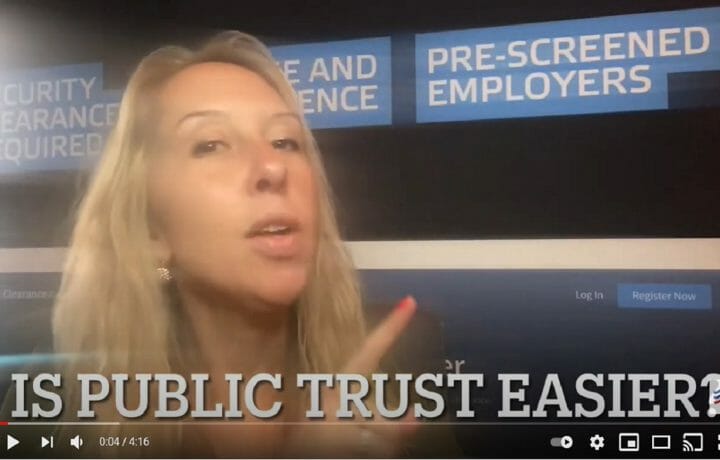There is common confusion between positions of public trust and positions which require access to classified information. A public trust is not the same as a security clearance, although the paperwork obtained to get a position of public trust is similar, it’s not the same as a security clearance. That doesn’t necessarily mean an individual who isn’t eligible for a security clearance would be able to obtain a position of public trust.
An SF-85P is the common application used for applying for public trust positions. The questions asked are so similar, an applicant could easily confuse the application for a position of public trust with a security clearance. A common misconception is also that obtaining a security clearance at a lower level or a public trust position would be easier than applying for a Top Secret security clearance. But the reality is the adjudicative guidelines considered in the clearance process are the same across levels, and the criteria for obtaining a position of public trust are similar. The adjudicative criteria are identical across the levels. But what differs is the suitability criteria applied. Suitability varies across government agencies, and what may be allowable in one agency may be more of an issue in another.
The adjudicative criteria are completely transparent, but an agency’s suitability guidelines are more obtuse. Adjudicators aren’t going around publishing what their specific criteria are. For applicants specifically wondering about drug use (a common question), the agency does matter – suitability guidelines will be loser for Department of State applicants than they are for law enforcement agencies.
No Hard ‘No’ Criteria
It’s good news for applicants that the criteria are the same across clearance levels and between classified positions and positions of public trust. That means whatever skeletons are in your closet – whether it’s drug use or a foreign spouse – your chances of obtaining a security clearance or a position of public trust are good. Because many of the checks for a position of public trust are automated, that means the investigation is less likely to uncover any surprises. But that doesn’t necessarily mean information you provide is ‘less’ likely to be an issue when applying for a public trust position than for a Top Secret clearance.



